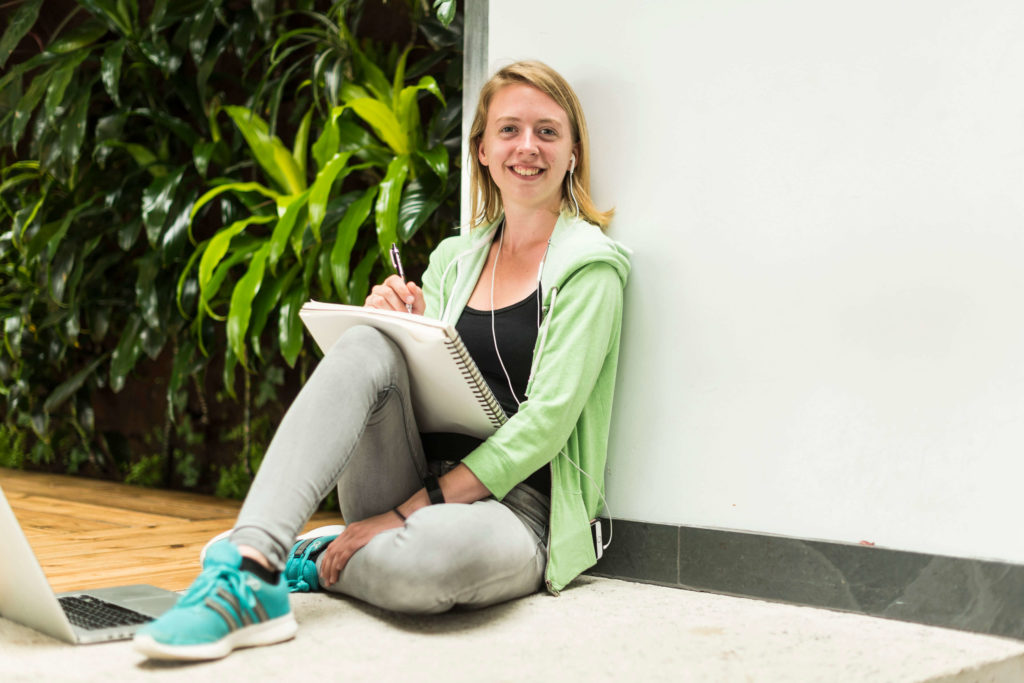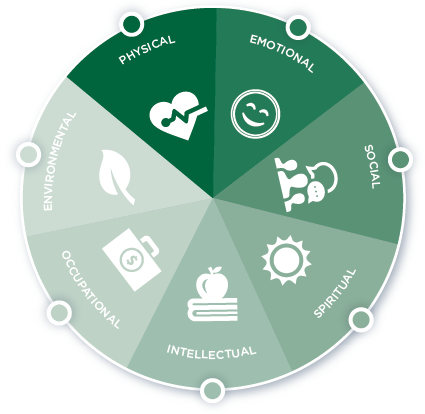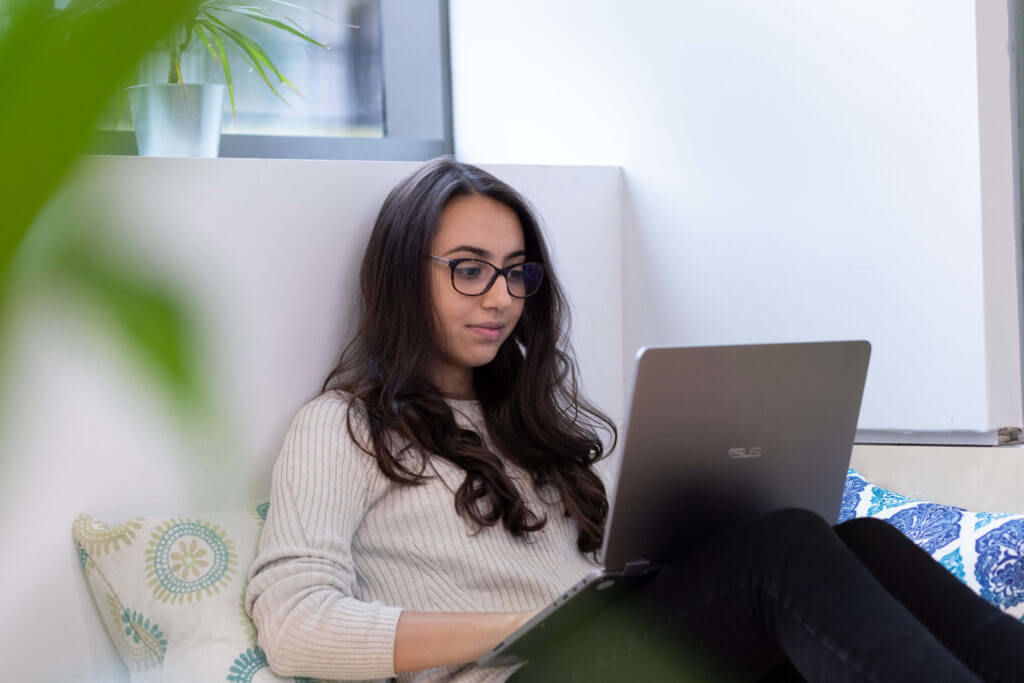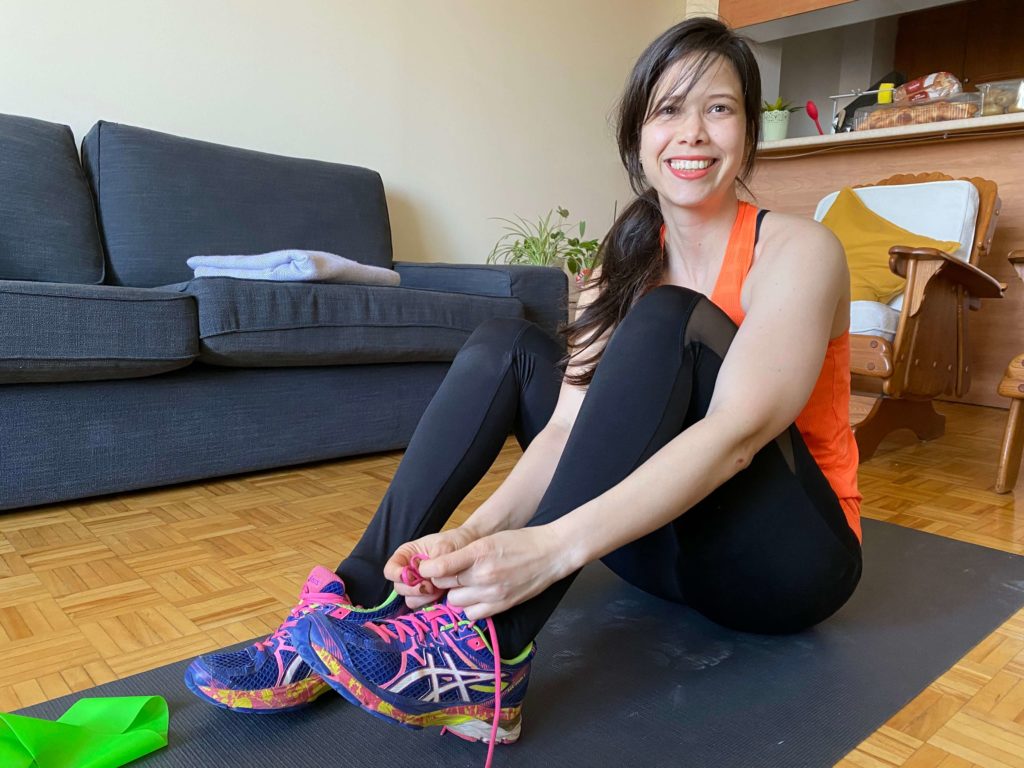 We often times think that wellness is only about exercising and eating well, but studies have shown that a number of factors effect out wellness.
We often times think that wellness is only about exercising and eating well, but studies have shown that a number of factors effect out wellness.
Jill Peck, professor and coordinator of the fitness and health promotion program at Algonquin College, explains that there are seven dimensions of wellness: physical, emotional, spiritual, social, environmental, occupational and intellectual.
This means that feeling well does not only depend on one factor. All dimensions are interconnected and if one of them suffers, it might impact you as a whole. In addition to that, the way you feel about the seven dimensions might always change, according to what is happening in your life.
“As you can imagine, if you rank yourself on each of these, there might have been one thing one day, but completely different the next day. And so, in our situation with what we have going on, that wellness wheel got flipped on its head,” says Peck.
It is a good practice to look at the different elements and try to rank how you feel about each one of them from 1 to 10.

If you are not sure about the definition of each dimension, here is what you should consider when ranking them in your personal wheel:
Physical
Physical wellness involves taking care of your body by making informed and responsible decisions about your health.
You know that you are becoming physically well when:
- You feel motivated to work toward your fitness goal(s)
- You appreciate the link between nutrition and how your body performs
- You notice that you have more energy and a higher level of mental alertness
- You detect a lower level of stress in daily life
Tips for Enhancing your Physical Wellness
- Engage in consistent physical activity
- Make fresh food options for meals, instead of processed food
- Take a break while studying to go for a brief walk
- Get yearly physical checkups and seek medical attention when necessary
Social
Social Wellness involves developing and maintaining positive, meaningful relationships with family, friends, peers and within your community.
You know you are becoming socially well when:
- You engage actively with your network of family, friends and colleagues
- You enjoy making positive contributions to your community
- You feel comfortable interacting with people of different ages, backgrounds and lifestyles
Tips for Enhancing your Social Wellness
- Keep in touch with your network of family, friends and colleagues
- Join a new activity on campus and join a volunteer group
- Practice effective listening skills
Emotional
Emotional wellness is attained by being comfortable with yourself and accepting of your feelings.
You know you’re emotionally well when:
- You have a positive self image
- You are optimistic about most things
- You can share your feelings with others
Tips for enhancing emotional wellness:
- Acknowledge your accomplishments
- Know that it’s okay to make mistakes
- Ask for help if you need it
Occupational/Financial
Financial and occupational wellness comes from satisfaction with your job. Do something you enjoy so you can look forward to going to work each morning. Work hard but make sure to balance work and leisure.
You know you are becoming occupationally well when:
- You recognize when it’s time to stop working and enjoy your time with friends and family
- You enjoy your work, workspace, and work mates.
- You can manage your finances well
Tips for enhancing your Occupational Wellness
- Celebrate success
- Take breaks
- Set goals for the future
- Balance work and leisure
- Don’t leave things until the last minute
Intellectual
Intellectual wellness involves engaging in creative stimulating activities that can develop as well as expand your knowledge and abilities.
You know your becoming intellectually well when:
- You engage actively in new experience outside your “comfort zone”
- You can challenge yourself to open to learn new ideas
- You can apply classroom knowledge in varied, real-life settings
- You are attuned to the world around you, including current events outside of your community
Tips for enhancing Intellectual Wellness
- Develop a study/learning plan that include short- and long-term goals
- Ask for help when you need it from supervisor, instructor, classmate, co-worker, etcetera
- Visit a campus library and check out a book that relates to your new interests
- Step out of your “comfort zone” by taking a workshop, trying a new hobby, or learning another language
Environmental
Environmental Wellness is about preserving and restoring the environment, being active in your community, and maintaining your personal areas indoors and out!
You know you are becoming environmentally well, when:
- You are aware of your impact on the environment
- You keep your personal areas (home, office, car, etc.) clean and organized
- You make efforts to preserve resources, such as food, water, and electricity
Tips for becoming more environmentally well, are:
- Limit your use of resources, including electricity, fuel, and helium
- Clean up and organize your personal areas
- Use public transit, carpool, walk, or bike!
Spiritual
Spiritual wellness is about living life to the fullest and knowing the values and beliefs that provide purpose to your life. Being selfless, compassionate, honest, forgiving and having a clear set of values all add to your spiritual wellness.
You know you are becoming spiritually well, when:
- You are honest with others
- You have a clear set of values
- You are forgiving and compassionate
- You are willing to help others
Tips to become more spiritually well, are:
- Know the difference between right and wrong
- Be grateful for the tangible and intangible things you have
- Be optimistic
- Keep an open mind about others and their personal beliefs
Figuring out how you are feeling for each dimension will help you find out which aspects of your life you have to work on and which ones you are doing well. It is a discovering process of yourself as well, Peck explains.
“I’ve got to move more. I’ve got to eat right, I’m going do these things, but there’s so much other stuff that we don’t think about that we should be doing. Maybe it’s taking a few minutes to just sit quietly and be present in your own mind for a purposeful five minutes a day or maybe it’s just sitting in being a breathing exercise.”
Source: Fit and Well by Thomas D. Fahey, Paul M. Insel, Walton T. Roth, Ilsa Wong






 We often times think that wellness is only about exercising and eating well, but studies have shown that a number of factors effect out wellness.
We often times think that wellness is only about exercising and eating well, but studies have shown that a number of factors effect out wellness.
